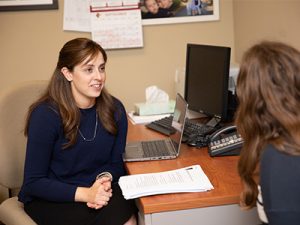Frisch Students Raise Mental Health Awareness
May 14, 2021
 This May, which is Mental Health Awareness Month, Yeshivat Frisch ran two programs to address mental health.
This May, which is Mental Health Awareness Month, Yeshivat Frisch ran two programs to address mental health.
The first program featured Dr. Rona Novick, dean of the Azrieli Graduate School of Jewish Education and Administration. She focused on practical, everyday ways to reduce stress, especially during COVID-19—for example, taking care of oneself through exercise, nutrition, and writing in a gratitude journal.

The second program, on May 13, was spearheaded by Frisch juniors Gabe Greenfield and Ava Eden. The program featured mental health advocate and educational consultant Marc Fein (via Zoom), a longtime program director for NCSY, who described his own experiences with depression and anxiety. He used his own story as a springboard to discuss how students suffering from these illnesses can reach out for help when they struggle, and how they can offer support to others. He emphasized that reaching out for help does not mean that one is weak; it means that one believes the situation can be better. The two phrases “I need help” and “How are you?” can save lives, he said.
After the discussion with Fein, students got to break out into smaller groups and discuss mental health issues in person with licensed professionals.
Greenfield and Eden, Executive Board of Student Council members at Frisch, spent close to 100 hours researching and planning last Thursday’s programming. They did so after being approached by a fellow student about mental health programming.
Greenfield said that he was not previously aware of the magnitude of the issue, and has since become more and more passionate about the subject. “From the beginning, I made it clear—I am no expert,” stated Greenfield. “I had no experience as a mental health advocate or creating programming, yet I was determined that change needed to be made and that I had the opportunity to make it. As Marc Fein, our keynote speaker, said—one out of every four people deals with mental health issues in adolescence. That’s an entire grade’s worth of people when you look at Frisch [based on the size of the student body]. Furthermore, half of those people never ask for or receive the help they need and deserve. All of us have mental health just as we have physical health. Just like one must take care of their physical health, the same holds true for mental health. Yet mental health is surrounded by a negative stigma, and even if that weren’t true, many people don’t realize that what they are going through is not normal and that they can get help.”
Greenfield said that he and Eden sought to create a program that would destigmatize mental health and make people realize that they are not alone and can get help, and to provide students who don’t suffer from mental illnesses with ways to help anyone in their life who does.
“Based on some feedback I have received, this program made many students feel heard,” said Greenfield following the program. “To know that it is OK to not be OK, and that there are ways to get better. I am extremely proud and happy with how the program came out, but it is only the beginning. I still have another year at Frisch and I plan on using it to create more programming and an open door environment. I hope to use the momentum of today to continue to make a positive impact on the school, and each and every student in it.”






 This May, which is Mental Health Awareness Month, Yeshivat Frisch ran two programs to address mental health.
This May, which is Mental Health Awareness Month, Yeshivat Frisch ran two programs to address mental health.